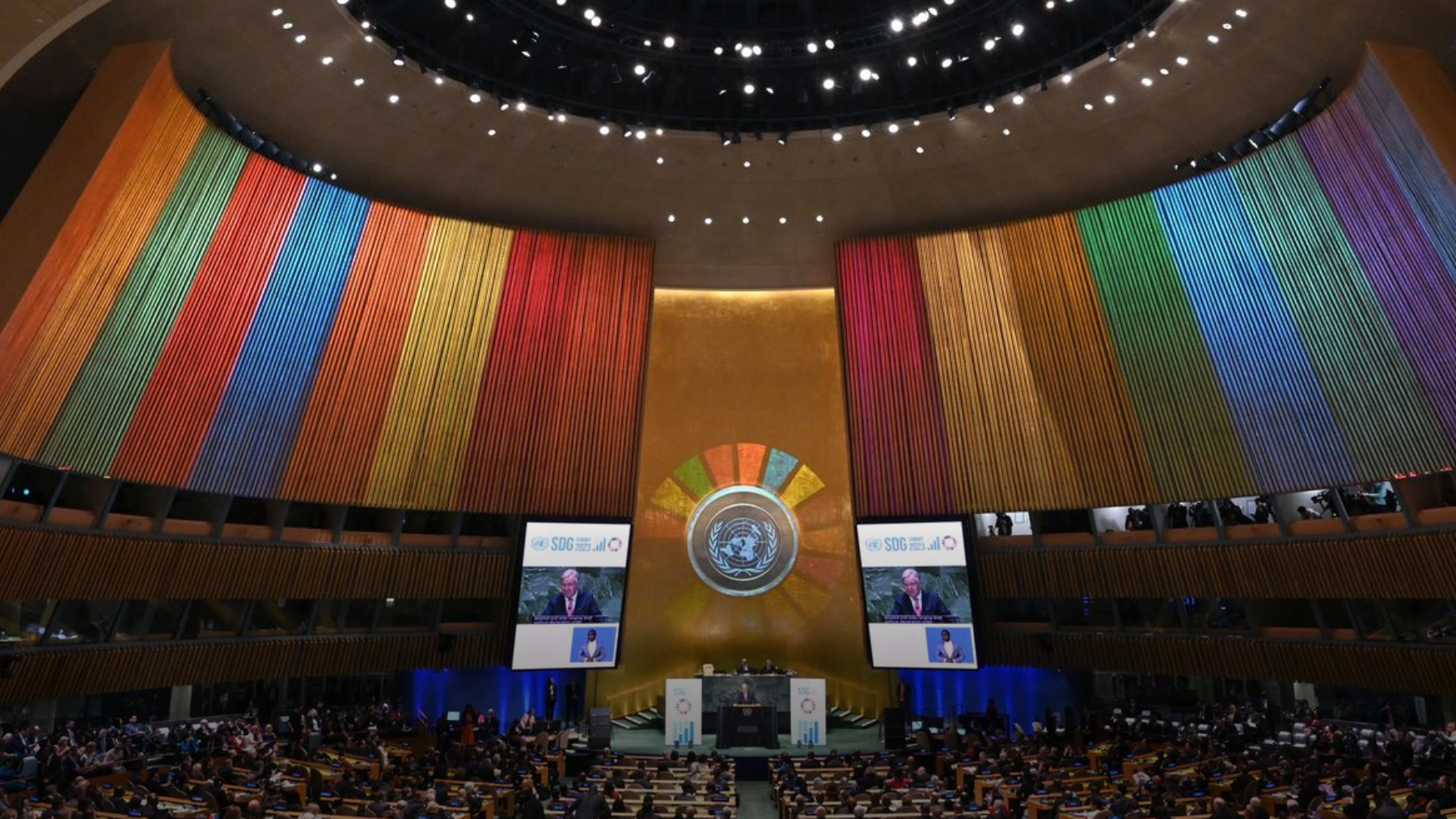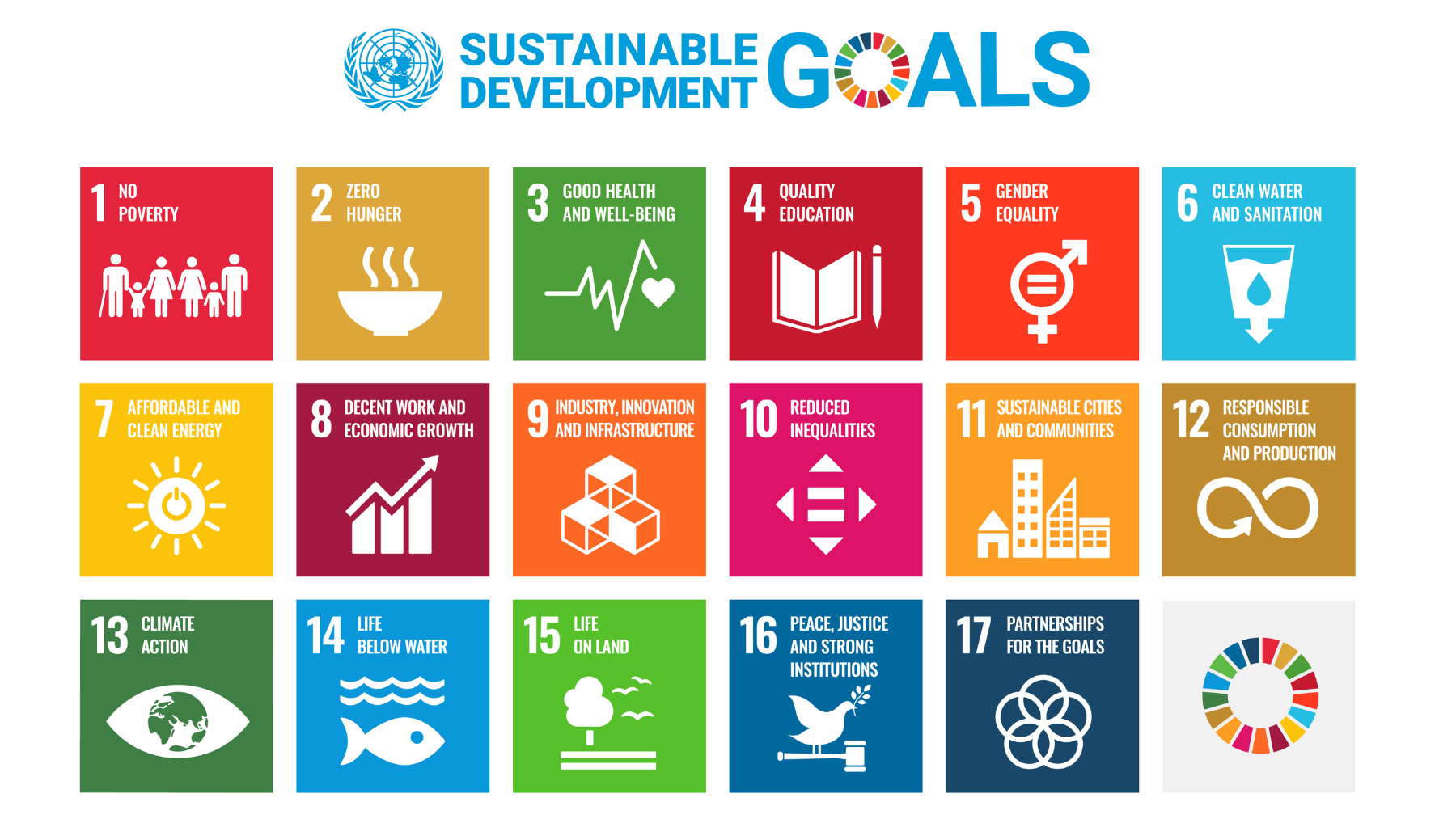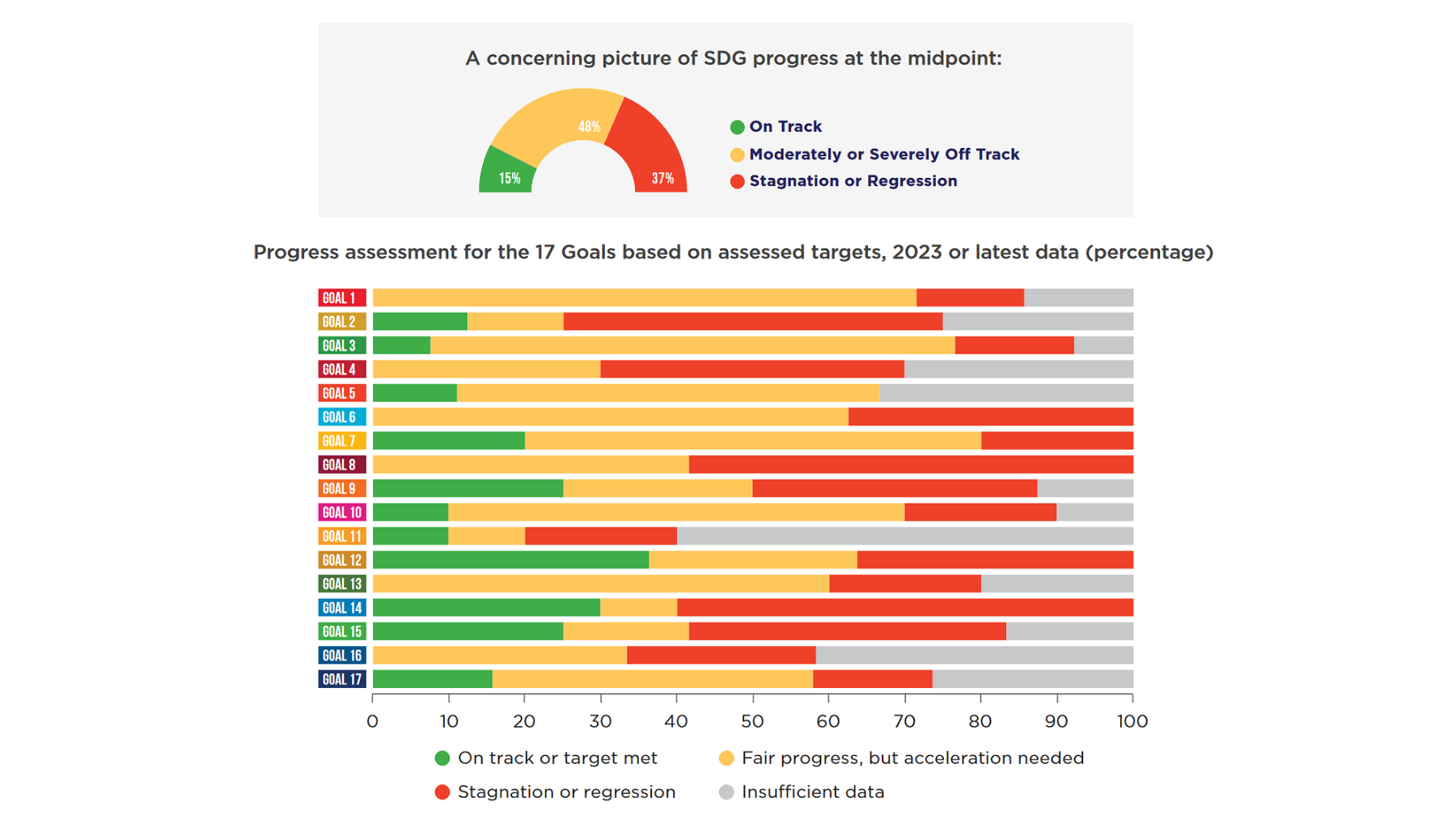World Metrology Day: We Measure Today for a Sustainable Tomorrow


Every World Metrology Day, we pause to reflect on how measurements affect our daily lives. This year’s theme, “Sustainability: We Measure Today for a Sustainable Tomorrow," continues the idea of using metrology to address pressing global issues. As the world becomes more concerned about our future, precise measurements will play a major role in preserving and protecting our planet. Metrology goes beyond what we think is possible, even supporting the UN’s sustainable development goals (SDPs), an ambitious plan for world peace and prosperity. This article discusses how precise measurements support sustainability efforts worldwide and how metrology can bring us one step closer to a greener future.

United Nations Secretary-General António Guterres speaks at the opening session of the second Sustainable Development Goals (SDG) Summit on September 18, 2023, ahead of the 78th UN General Assembly. Timothy A. Clary/AFP via Getty Images
METROLOGY’S ROLE IN THE 2030 AGENDA FOR SUSTAINABLE DEVELOPMENT
The United Nations introduced the 2030 Agenda for Sustainable Development after a historic 2015 UN Summit, during which 193 countries unanimously embraced it. These 17 goals are a blueprint for eliminating poverty, fighting inequalities, and tackling climate change by 2030. The Sustainable Development Goals (SDGs) build on the success of the Millennium Development Goals (MDGs), which reduced poverty rates by half, reduced child mortality, and provided universal primary education. The SDGs pick up where the MDGs left off—expanding on them to include more noble targets such as ending extreme poverty by 2030.

Although the SDGs are not legally enforceable, each country is responsible for developing a plan to meet them. Metrology keeps these goals on track. Accurate measurements are the lifeline to monitoring and evaluating the progress of sustainable development initiatives. However, not long after the summit, catastrophic events like war, climate change, and COVID-19 either curtailed or stalled improvements made. Countries are now putting out fires, focusing on inflation and rising interest rates instead of planning for a sustainable future. With six years left, fulfilling the SDGs seems unlikely unless everyone acts now.
Even in this case, metrology can still support the SDGs by helping countries meet their energy efficiency (goal 7), manufacturing and infrastructure (goal 9), and climate change (goal 13) targets. Precise measurements can help in several ways, from establishing traceability to providing reliable results. With that information, leaders can make informative, data-driven decisions that become policies and strategies. Though the world is far off track, there is still hope for a more sustainable reality with metrology.
SUSTAINABLE GOAL 7: MEASUREMENTS FOR AFFORDABLE AND CLEAN ENERGY

Energy powers modern society, and we use it for everything. However, the carbon-based fuels used harm the environment, and as they dwindle, more people worldwide will face energy shortages. Since this source drives every aspect of our lives, society calls for a pivot to more secure, sustainable energy. Energy efficiency and renewable energy are promising alternatives to fossil fuels. Renewables such as solar and wind produce no emissions and are abundant.
In fact, investments in green energy exceeded fossil fuels for the first time in 2022. But, the war in Ukraine prompted a global energy crisis, and without electricity, there was a spike in petroleum gas and coal. Experts expect this to be a temporary solution and that the demand for fossil fuels will decline over time. Many believe in the benefits of green energy for the environment, the job market, and the economy.
Measurements are critical in every stage of advancing green energy. Every industry needs precise measurements to help monitor its energy performance. Measuring tools like power meters and thermal imaging cameras give insights into energy consumption. These results allow them to improve and implement energy-saving measures while reducing their carbon footprint.
SUSTAINABLE GOAL 9: MEASUREMENTS FOR INNOVATIVE NEW PRODUCTS

More and more companies are using sustainability to push innovation forward. At this point, sustainability can no longer be a buzzword but an active participant in their operations, or they risk being left behind. 77% of consumers would instead buy from companies that firmly commit to corporate social responsibility over those who do not. While it’s clear that businesses need to make profits, customers also expect them to contribute to society in other ways.
COVID-19 singlehandedly disrupted the manufacturing industry, and we expect to feel its lasting effects for a while. Nearly 35% of manufacturers reported supply chain failure. Now, they face high inflation, difficulty finding raw materials, and persistent disruptions in the supply chain. At the same time, the pandemic had a positive impact on the environmental side of production. The global shutdowns caused many companies to stop operations, and renewable technology kept CO2 emissions low.
Manufacturers can still produce high-quality products through sustainable manufacturing practices. Every company has to refer to measurement standards and ensure traceability to control their processes and guarantee product quality. We know effective metrology supports product innovation, continuous improvement, and quality assurance. But it also promotes sustainability through resource management. Precise measurements enable control of raw materials–minimizing waste and conversing resources–reducing environmental impact.
SUSTAINABLE GOAL 13: MEASUREMENTS FOR CLIMATE CHANGE

Climate change is the greatest threat to our planet, and it is only getting worse. Our choices today determine how liveable the world will be for future generations. Burning fossil fuels, deforestation, and overconsumption spiked the Earth’s temperature to 1.1°C above preindustrial levels. As the world gets hotter, we will see more erratic weather, displacement, food shortages, damaged ecosystems, and death—unless we do something drastic.
Even though we spent a historic amount on climate action, the world’s governments spent $7 trillion last year on subsidies that damage the environment. Supporting fossil fuel production and harmful agricultural practices undermined our progress. In just a few years, this decision canceled out the $1,090 billion allocated to green spending. If we continue funding the greatest contributor to climate change, we cannot fight its effects. Meanwhile, the most vulnerable communities will suffer the most from climate change despite contributing the least to its causes.
To act, we need to understand the full scope of climate change, which requires accurate measurements. With metrology, measurements taken at different times and by others will yield similar results. Because the data must be consistent and fully traceable to SI units, metrology ensures that the measurement remains stable over time. Then, we can monitor environmental indicators, greenhouse gas emissions, and rising temperatures to create sustainable climate policy. Failure to achieve Goal 13 means a dangerous future for all living beings, making it impossible to achieve the 2030 Agenda.
Last Thoughts

As 2030 inches closer, all countries must renew their efforts to fulfill the Sustainable Development Goals. The 2030 Agenda is the clearest blueprint for a desirable future for everyone. Metrology helps us collect accurate data to face the world’s pressing challenges. We must use precise measurements to conserve resources, protect the environment, and sustainably manufacture goods. In 2015, world leaders declared that the world’s future is ours. Now is the time to act to achieve all the goals fully and on time, leaving no country or person behind.
Contact Us Today
At Master Gage & Tool Co, we are problem solvers who work with our customers to create customized solutions to their needs. We offer a wide range of equipment and services to help improve operations in any industry.
If you want to learn more about how we can help you, contact us today:
Our Danville Office: (434) 836-4243
Our Greenville Office: (864) 447-5100
Or use our online contact form.
REFERENCES
Baker, D. (2023, January 26). $1 Trillion Green Investment Matches Fossil Fuels for First Time. Bloomberg.com. https://www.bloomberg.com/news/articles/2023-01-26/global-clean-energy-investments-match-fossil-fuel-for-first-time
Black, S., Parry, I., & Vernon, N. (2023, August 24). Fossil Fuel Subsidies Surged to Record $7 Trillion. IMF. https://www.imf.org/en/Blogs/Articles/2023/08/24/fossil-fuel-subsidies-surged-to-record-7-trillion
Botta, E. (2022, April 21). Assessing the environmental impact of measures in the OECD green recovery database. OECD. https://www.oecd.org/coronavirus/policy-responses/assessing-environmental-impact-of-measures-in-the-oecd-green-recovery-database-3f7e2670/
Hausfather, Z. (2023, January 18). State of the climate: How the world warmed in 2022. Carbon Brief. https://www.carbonbrief.org/state-of-the-climate-how-the-world-warmed-in-2022/
Kumar, A., Luthra, S., Kumar Mangla, S., & Kazancoglu, Y. (2020). COVID-19 impact on sustainable production and operations management. Sustainable Operations and Computers, 1(1), 1–7. ScienceDirect. https://doi.org/10.1016/j.susoc.2020.06.001
Stobierski, T. (2021, June 15). 15 Eye-Opening Corporate Social Responsibility Statistics. Harvard Business School Online; Harvard Business School. https://online.hbs.edu/blog/post/corporate-social-responsibility-statistics
Thermographic Inspections. (2022). Energy.gov. https://www.energy.gov/energysaver/thermographic-inspections
Unanimously Adopting Historic Sustainable Development Goals, General Assembly Shapes Global Outlook for Prosperity, Peace | UN Press. (2015, September 25). Press.un.org. https://press.un.org/en/2015/ga11688.doc.htm
United Nations. (2015). The 17 Sustainable Development Goals. United Nations. https://sdgs.un.org/goals
United Nations. (2023). Renewable energy – powering a safer future. United Nations. https://www.un.org/en/climatechange/raising-ambition/renewable-energy#:~:text=Renewable%20energy%20sources%2C%20such%20as
University of California Museum of Paleontology. (n.d.). Burning of Fossil Fuels. Understanding Global Change; University of California Museum of Paleontology. Retrieved May 14, 2024, from https://ugc.berkeley.edu/background-content/burning-of-fossil-fuels/
UNSDG | Global impact of war in Ukraine: Energy Crisis – BRIEF NO.3. (2022, August). Unsdg.un.org. https://unsdg.un.org/resources/global-impact-war-ukraine-energy-crisis-brief-no3
